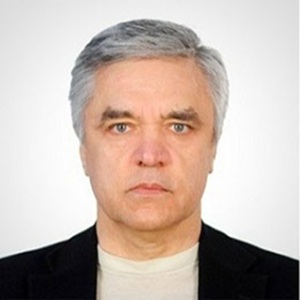Abstract Detail

Sergey Suchkov
N.D. Zelinskii Institute for Organic Chemistry of the Russian Academy of Sciences, Russia.
Abstract
Biodesigners, biotechnologists and biomanufacturers are beginning to realize the promise of personalized and precision medicine (PPM), translating to direct benefit to patients or persons-at-risk.
Both PPM, personalized vaccinomics and nanobiotechnologies are being integrated into a panel of precision tools to manage an array of medical conditions. The next ‘golden age’ in vaccinomics will be ushered in by the new science of vaccinomics, which will inform and allow the development of personalized vaccines, based on our increasing understanding of immune response phenotype: genotype information.
The ideal vaccine would induce a robust immune reaction without serious adverse effects. In this sense, personalized vaccines promise to fulfill those criteria, aided by in-depth genetic studies of variation in immune responses – vaccinomics, which jointly with nanotechnology have revolutionized global attempts to prevent, treat, and eradicate infectious diseases and cancer in the foreseen future. Nanotechnology is used in precision vaccinomics in conjunction with advanced tools such as OMICS technologies to achieve more personalized therapeutic strategies. For instance, nanoparticles and nanocarriers have been developed to overcome the limitations of design-driven engineered vaccines and navigate biological barriers - systemic, microenvironmental and cellular - that are heterogeneous across patient populations and diseases. Assuming such barriers can be overcome, the new systems and synthetic biology, in combination with increasing genotype, phenotype information and low cost, high output genetic screening will inevitably lead towards a more personalized approach to vaccines, just as it has with pharmaceuticals.
Meanwhile, nanovaccines are made up of nanoparticles that are associated with or prepared with components that can stimulate the host's immune system and have the potential to promote rapid as well as long-lasting humoral and cellular immunity. The nanovaccines have several possible benefits, including site-specific antigen delivery, increased antigen bioavailability, and a diminished adverse effect profile. For instance, peptide based vaccines (proteomics-driven vaccines) have shown significant promise in certain types of cancer treatment (preventive and prophylactic pre-cancer vaccines), but have had limited success in combating several viral infectious diseases. Vaccines based on peptides appear to hold the possibility of a quick response against sudden outbreaks of viral epidemics and pandemics, both for communities and individuals. Recent advances in treatment with multiple peptides, new knowledge of their interaction with the immune system and understanding of characteristics of peptides in vivo environment lead us to believe that the prospects of peptide vaccinomics are more promising clinical successes.
While vaccinomics concerns the effectiveness of vaccines, adversomics concerns their side effects. This area has great potential to address public concerns about vaccine safety and to promote increased public confidence, higher vaccination rates, and fewer serious adverse events in genetically predisposed individuals. Moreover, this knowledge gives us the opportunity in the event of viral epidemics to tailor making vaccines for different communities for maximum efficiency and for immunocompromised individuals. The latter means that advancements in nanobiomedicine have played a crucial role in driving the PPM-guided revolution and precision and personalized vaccinomics, in particular. With the ability to engineer and manipulate materials at the nanoscale, biodesigners have been able to develop innovative solutions for diagnostics, drug delivery, and imaging.
The Grand Change and Challenge to secure our Health and Wellness are rooted not in Medicine, and not even in Science! Just imagine WHERE?! In the upgraded Hi-Tech Culture!
Biography
Sergey Suchkov graduated from Astrakhan State Medical University and awarded with MD, then in 1985 maintained his PhD at the I.M. Sechenov Moscow Medical Academy and in 2001, maintained his Doctorship Degree at the Nat Inst of Immunology, Russia. From 1987 through 1989, he was a senior Researcher, Koltzov Inst of Developmental Biology. From 1989 through 1995, he was a Head of the Lab of Clinical Immunology, Helmholtz Eye Research Institute in Moscow. From 1995 through 2004, a Chair of the Dept for Clinical Immunology, Moscow Clinical Research Institute (MONIKI. Dr Suchkov has been trained at: NIH; Wills Eye Hospital, PA, USA; Univ of Florida in Gainesville; UCSF, S-F, CA, USA; Johns Hopkins University, Baltimore, MD, USA. He was an Exe Secretary-in-Chief of the Editorial Board, Biomedical Science, an international journal published jointly by the USSR Academy of Sciences and the Royal Society of Chemistry, UK. At present, Dr Sergey Suchkov is a Chair, Dept for Personalized Medicine, Precision Nutriciology and Biodesign of the Institute for Global Health and Biotech of MGUPP, and Professor of the Dept for Clinical Allergology & Immunology of A.I. Evdokimov MGMSU, Russia. He is a member of the: New York Academy of Sciences, USA; American Chemical Society (ACS), USA; American Heart Association (AHA), USA; EPMA (European Association for Predictive, Preventive and Personalized Medicine), Brussels, EU; ARVO (American Association for Research in Vision and Ophthalmology); ISER (International Society for Eye Research); PMC (Personalized Medicine Coalition), Washington, USA.
